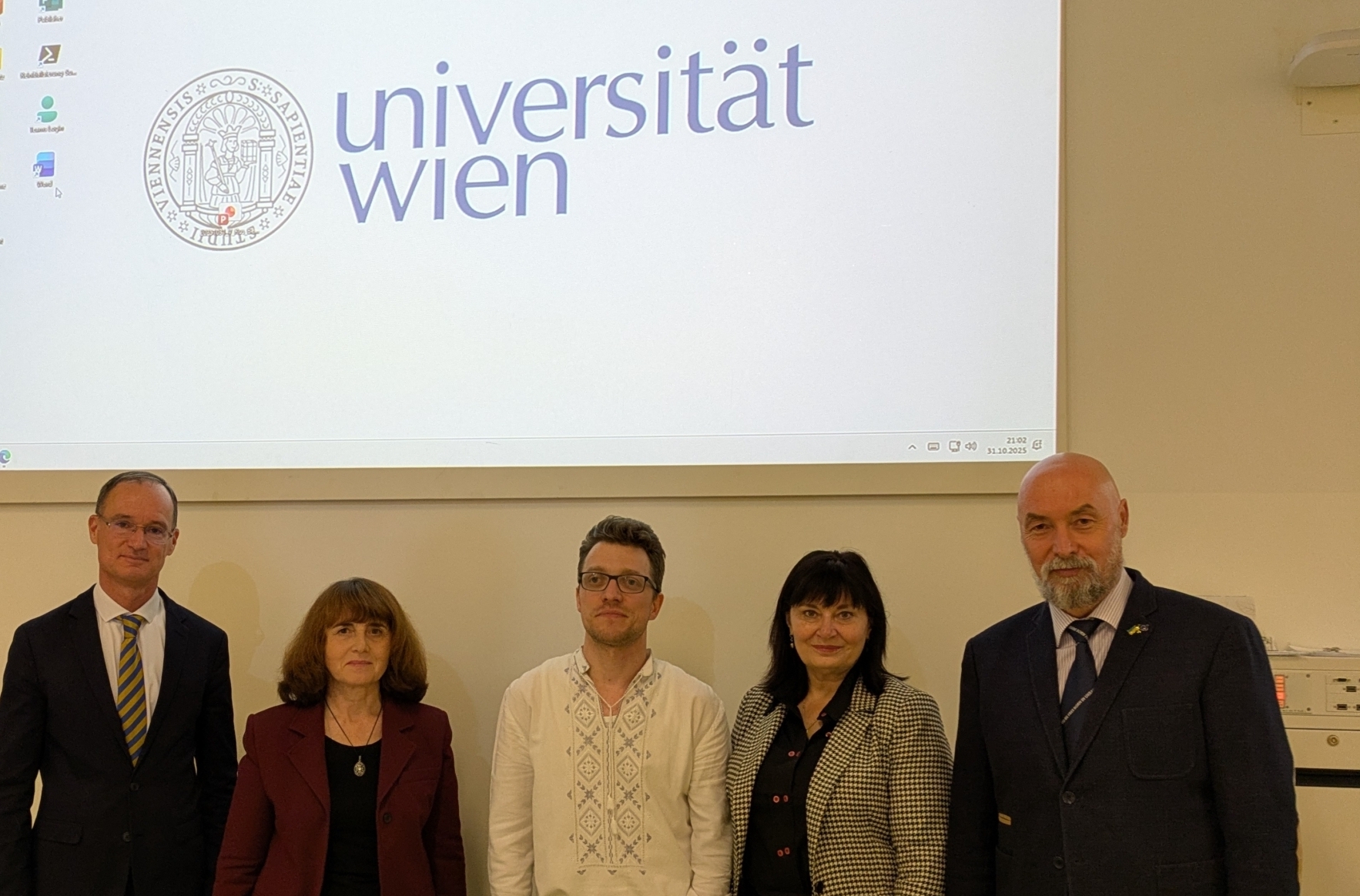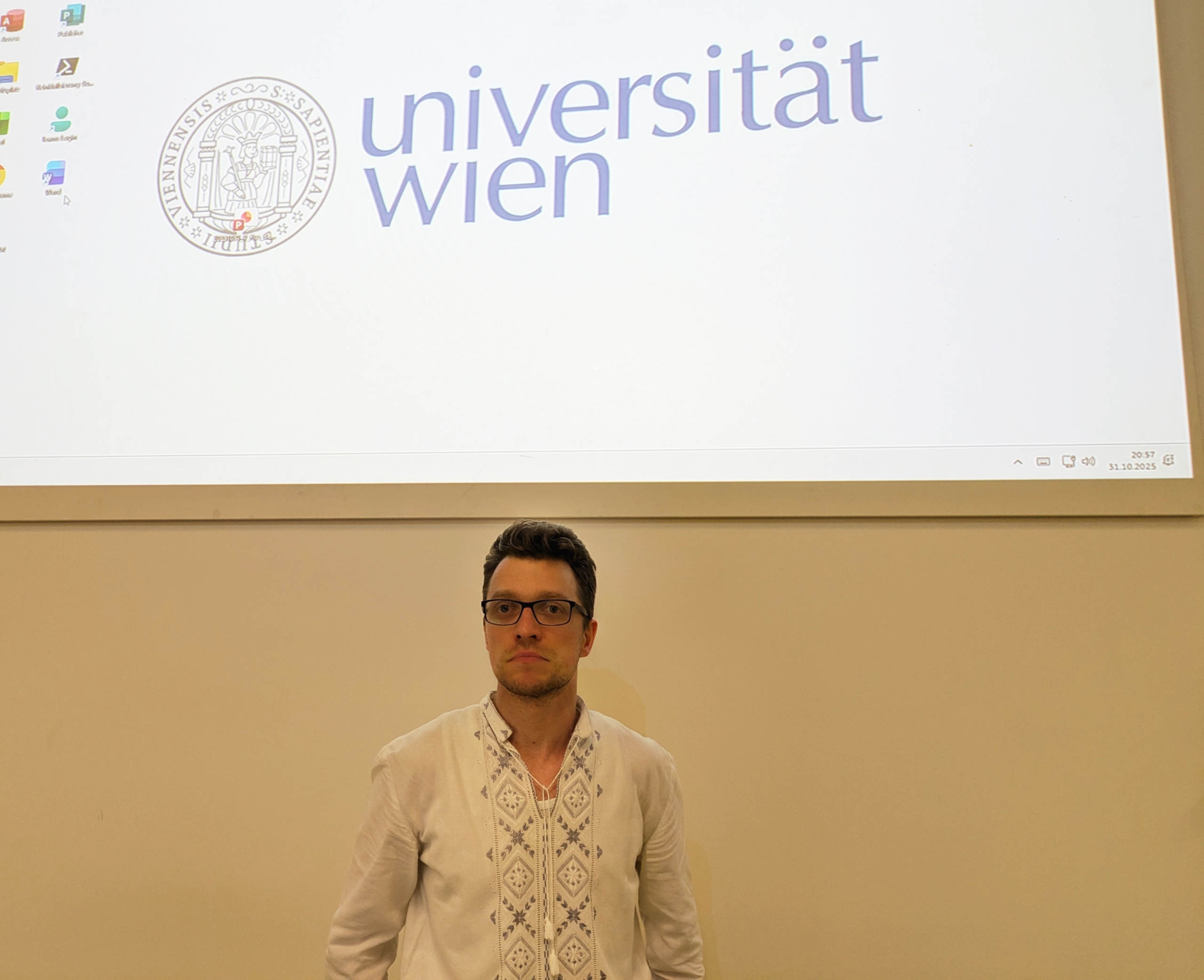ZMINA’s Analyst Borys Petruniok took part in a public conference at the University of Vienna
The University of Vienna hosted a public conference, “The Occupation of Ukraine: Russian Policy in the Captured Territories”, organised by the Austrian-Ukrainian Historical Commission. The event was devoted to analysing Russian occupation policy, its impact on local residents, and the specifics of the functioning of the occupation administrations.

The conference was attended by Austrian and Ukrainian scientists, researchers and experts in the fields of history, international law and human rights. Among the invited speakers was Borys Petruniok, Researcher and Analyst at the Documentation Department of the Human Rights Centre ZMINA, who spoke about war crimes in Ukraine as a tool of the Russian Federation’s long-term policy.
“Since the beginning of the full-scale invasion, the Russian Federation has systematically committed crimes against the civilian population in the occupied regions. Arbitrary detentions, enforced disappearances and torture have been systematically used as a means of overcoming civilian resistance, intimidating the population, and destroying grassroots self-organisation and trust among people. In fact, the Russian Federation has turned war crimes against civilians into a tool for achieving the goals of its occupation policy,” Petruniok emphasised.

According to Petruniok, war crimes in the occupied territories are systemic and coordinated in nature. The Russian Federation is consistently and deliberately eradicating any manifestations of Ukrainian identity and targeting its bearers.
The analyst highlighted that Russia does not view the occupation as a temporary phenomenon and is therefore attempting to “integrate” the seized territories into its own structure by extending its legislation and developing a network of “administrative” and “political” institutions. Consequently, this creates additional threats for opponents of the occupation regime and complicates future processes of reintegrating the territories and their populations. It also indicates that the aggressor has no intention of stopping.
The conference in Vienna became an important platform for a professional discussion of the consequences of Russian aggression, as well as possible ways to document crimes and hold those responsible to account.
If you have found a spelling error, please, notify us by selecting that text and pressing Ctrl+Enter.















